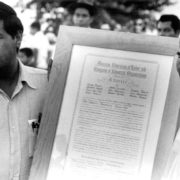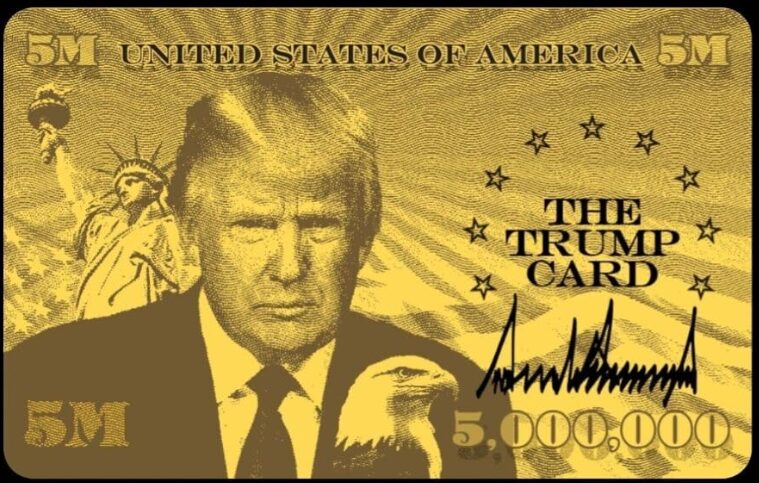LOS ANGELES – Filipinos cried ‘foul’ over the supposed inaccuracies of the Hollywood biopic, Cesar Chavez that premiered in Los Angeles .
Directed by Diego Luna, the film tells the story of the heroic rise of United Farm Workers (UFW) movement leader, Cesar Chavez.
Filipino protesters pointed out that there was a lack of representation of Filipino labor leaders, Larry Itliong and Philip Vera Cruz, in the film — making it an inaccurate portrayal of the movement born from the Filipinos’ 1965 Grape Strike in Delano.
According to the Filipino American National Historical Society (FANHS), the Chavez movie “does not emphasize the importance of the historic multi-ethnic alliance between Mexicans and Filipinos in the UFW.”
“We respect Diego Luna’s vision of a film about the heroic rise of Cesar Chavez. But as a history of the farmworkers’ struggle, the film falls short by downplaying, erasing and silencing the significant role that Filipinos and others played in the heroic struggle for farmworkers’ justice in California,” said Dr. Dawn B. Mabalon, FANHS board member and associate professor of history at San Francisco State University (SFSU).
Mabalon said that while they recognize that the Hollywood film was not (in the strict sense) a documentary, the filmmakers nevertheless have “a responsibility to ensure that the history they present is accurate.”
“We hoped that the film would show how Filipino strike leaders such as Itliong, Pete Velasco, Philip Vera Cruz, Ben Gines, and Andy Imutan, and Mexican leaders such as Chavez, Dolores Huerta and Gil Padilla, did the challenging work of organizing workers and crewing and sustaining a coalition and how their strategies, cooperation, and solidarity resulted in the nation’s first successful farm labor union, the United Farm Workers. It does not,” Mabalon said.
Discrepancies
In 1960, Itliong was was an organizer for a predominantly Filipino union under AFL-CIO, the Agricultural Workers Organizing Committee (AWOC). When grape-growers in Delano refused to increase the workers’ wages, more than 1,500 AWOC members went on strike on Sept. 8, 1965.
When Mexican temporary workers took the Filipinos’ jobs, Itliong convinced Chavez and the National Farm Workers Association (NFWA) to join the strike.
On Sept. 16, 1965, the NFWA voted to join the AWOC. In 1966, the AWOC and the NFWA merged to form the UFW Organizing Committee. Chavez was named director, while Itliong served as the UFW’s assistant director from 1966 to 1971. Vera Cruz and Velasco also served on the UFW executive board.
According to FANHS, the Chavez film implied that the NFWA was the only union ever in farm labor. FANHS added that Itliong and his fellow Filipinos have been organizing for labor rights since the 1920s, and that “they were feared for their militance.”
The AWOC had been in Delano since the early 1960s, the FANHS said.
“The Filipino strike that begins on Sept. 8, 1965, is shown for a few seconds on screen and without context,” the group said in a statement.
According to the FANHS, the film also did not depict the 1966 merger between the AWOC and the NFWA, which resulted in the birth of the UFW.
The Filipino voice and presence in the UFW were also largely absent in the film.
While in history, there were several thousand Filipino strike participants, only a small group was shown briefly in the Grape Strike scenes in the movie. Also, Itliong only speaks one line to Chavez, and appears in just a few quick shots, always in the background and is absent throughout most of the film, the FANHS said.
At the Chinese Mann Theater in Hollywood, Filipino activists held a protest during the movie’s red carpet premiere.
The protesters were led by Itliong’s son, Johnny. Based on what they saw in the trailers, they claimed that the movie did not show Larry Itliong’s participation in scenes which depicted the March to Sacramento and in the signing of the labor contract with grape-growers.
“Those are the pinnacle events in the UFW and they’re missing half the story. It’s an injustice to my father that he is not at that table,” the younger Itliong said in an ABS-CBN News report.
The role of Larry Itliong in the move was played by Fil-Am actor Darion Basco. Protesters claimed that Itliong’s portrayal was inaccurate and that no other Filipino labor leaders were shown in the film.
Critique
Fil-Am artist/muralist Eliseo Art Silva, who joined Johnny Itliong in spearheading the protest at the Chavez premiere, said that the film was not historically accurate because it “ignored the contributions of the Filipino workers and leaders.”
The film also grossly insults the Filipino-American community by “just immortalizing Chavez” while glossing over the role of his Filipino partners in the UFW, Silva said.
Arturo Garcia, a known activist in the Fil-Am community in Los Angeles, called the Chavez movie “fictional and historically inaccurate.”
“I understand the feeling of Larry Itliong’s son when he saw in the movie that his father was shown as [someone] begging Cesar Chavez to join the strike. It is both insulting and demeaning,” Garcia said.
(With reports from Steve Angeles of ABS-CBN News.)
(www.asianjournal.com)
(LA Midweek April 2-4, 2014 Sec A pg.1)







